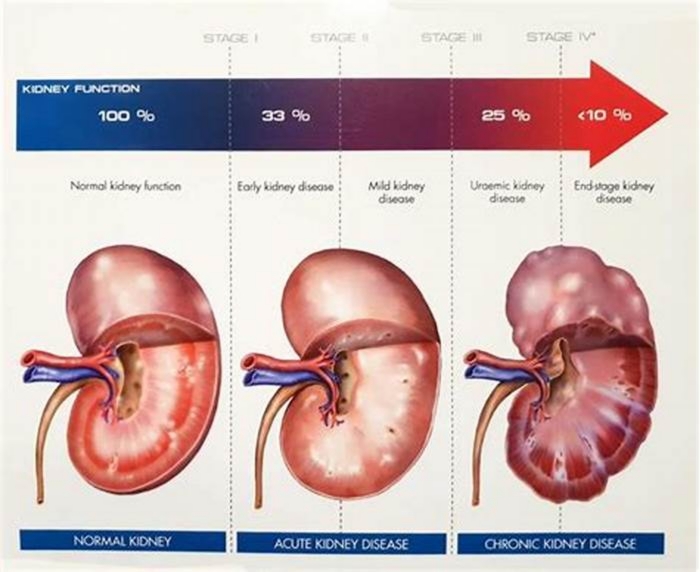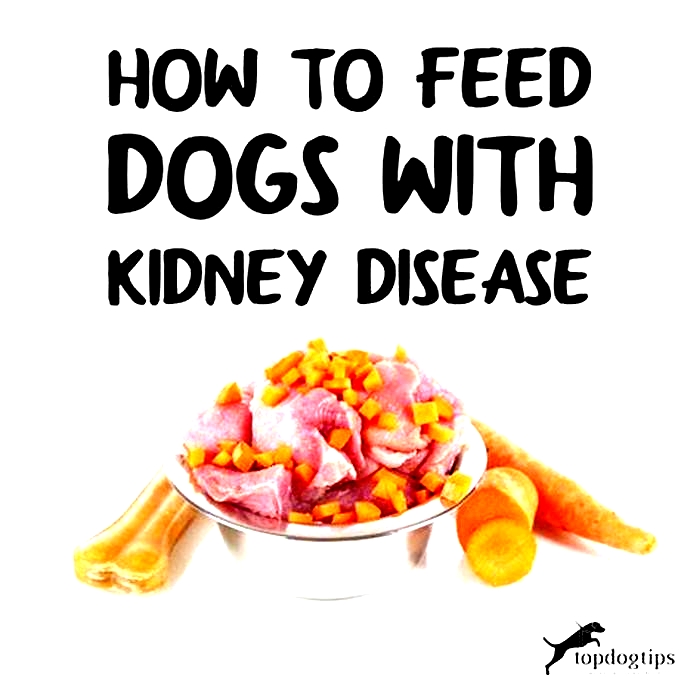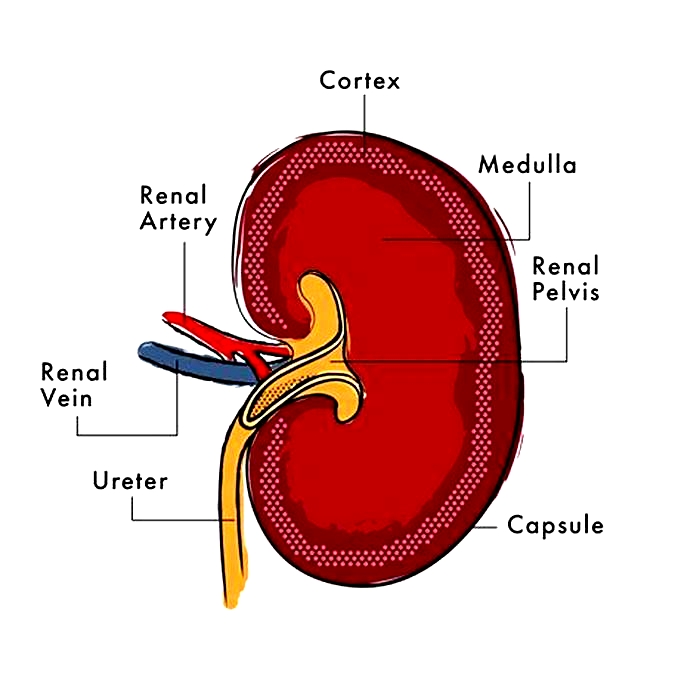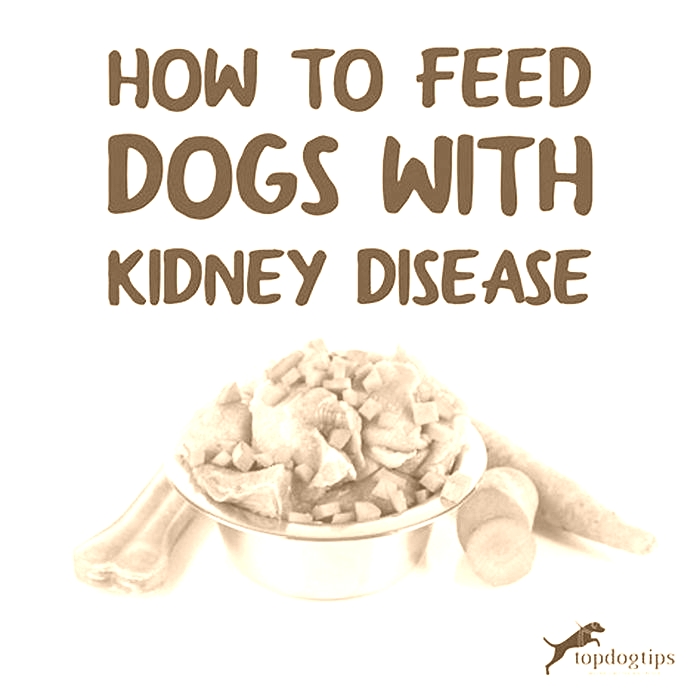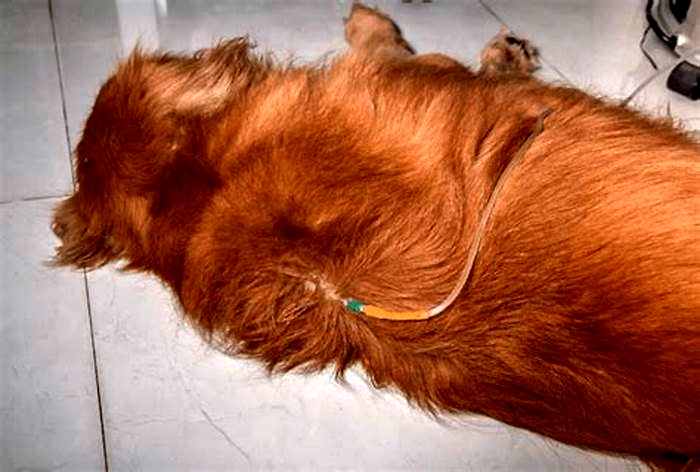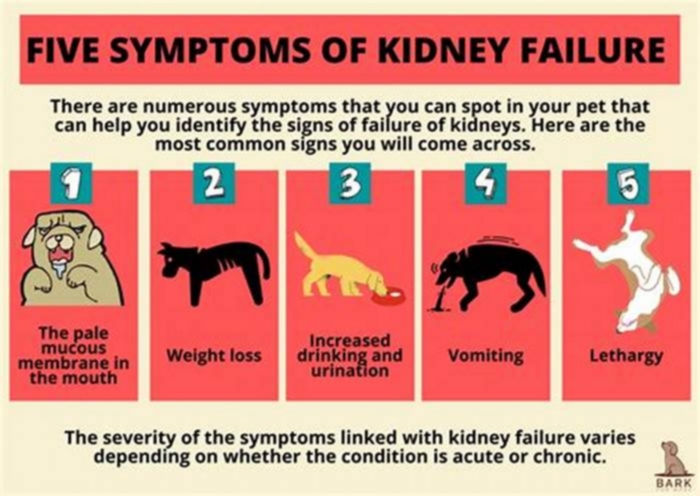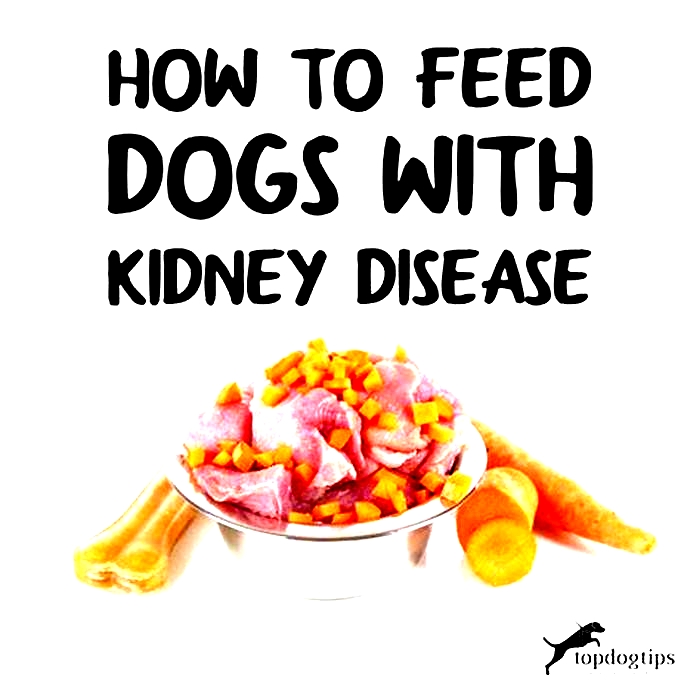kidney disease in dogs causes
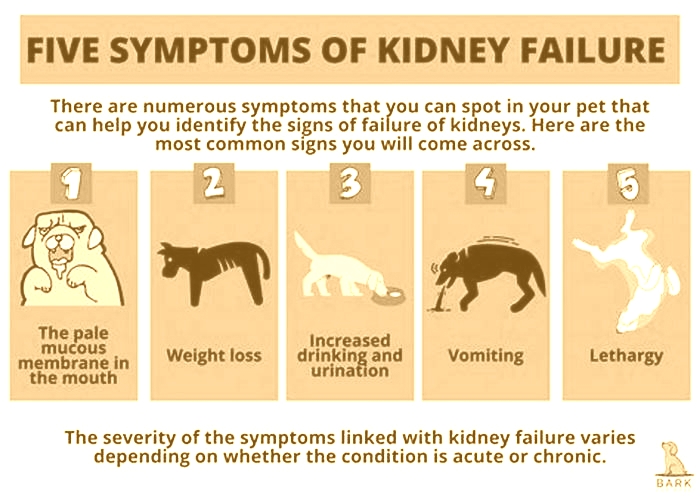
10 Common Causes of Kidney Disease in Dogs
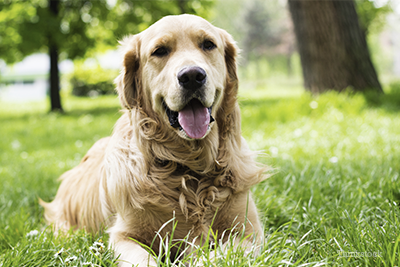
Kidney disease is a common problem of older dogs, affecting an estimated 10% of canines in their lifetimes1. There are a number of causes that may affect different age groups and have different consequences, ultimately though, chronic kidney disease (occurs over time) or acute kidney injury(occurs suddenly) will always have the same resultone sick pup. The signs of illness in your dog reflect the failure of the kidneys to do their many jobs well enough.Learn the basics of chronic kidney disease in dogs.Below you will find a brief description of ten common causes of kidney disease. These are the targets of your veterinarians testing:1. Damage to the kidney filters (glomerular disease)The glomerulus of the kidney (kidney filtration mechanism) is commonly involved in canine kidney disease. Early on, we expect no signs of illness, but since glomerular disease may be caused by infections (like Lyme disease) or cancer, amongst other things, time can make the problems worse. Over time, inflammation, in the glomerulus of the kidney, damages the surrounding kidney tissues, creating the chronic kidney disease that makes your dog feel sick.
Learn more about glomerular disease in dogs.
2. Infection of kidney tissues (pyelonephritis)Infection of kidney tissues with bacteria, or rarely, fungal organisms, is one of the kidney diseases that may have a more favorable outcome, so your veterinarian will be on the lookout for it. Our goal with pyelonephritis is to kill the bacteria that can cause the damaging inflammation. This should limit progression of any chronic kidney disease or assist with recovery from an acute kidney injury. A bacterial urine culture and susceptibility can verify the infection and identify which antibiotic might work the best.3. Kidney stones (nephrolithiasis)Kidney stones can be the product of chronic bacterial infection, genetics or diseases that alter blood or urine characteristics. Nephro (kidney) liths (stones) dont seem to cause dogs much pain, but this can change if they cause blockage within the kidney or its collecting ducts; it can also change if they contribute to infection (see pyelonephritis).
Learn more about kidney stones in dogs.4. Kidney blockage (ureteral obstruction with hydronephrosis)Kidney stones can fragment and be carried along with urine into the ureter, the long narrow tube that connects each kidney to the urinary bladder. They are probably painful during their transit, but the bigger concern is the consequence to the kidney if they become lodged there, causing partial or complete blockage. New urine cannot exit the kidney easily and it backs up, causing the kidneys to swell. With enough pressure, the kidneys enlarge (hydronephrosis) and become damaged. If both ureters obstruct at the same time, it can prove disastrous.
5. Damage to kidney tubules (tubulointerstitial disease)Inflammation and damage to the kidney tubules and supporting tissues commonly leads to chronic kidney disease. In many cases there is no identified cause, and thus no option for specific treatment. This type of kidney disease can only be confirmed by microscopic examination of a kidney biopsy specimen, but biopsies are not usually recommended.6. Bacterial infection (leptospirosis)Bacterial infection with leptospires causes kidney disease and other organ challenges in dogs and people all over the world. Normally, the effects of leptospirosis will be quite sudden and cause an acute kidney injury. Occasionally, the infection might cause chronic kidney disease. Quick recognition of this highly treatable disease should lead to a better outcome and protect your dogs friends and family (YOU!) from becoming infected by contact with urine or other body fluids.
Learn more about leptospirosis in dogs.
7. ToxinsLots of household items can damage the kidneys, not just antifreeze. Ordinary table foods like grapes and raisins; certain commercial jerky treat products; common OTC medications like aspirin or other nonsteroidals (NSAIDs); or prescribed medications can all cause kidney disease. Venoms, pesticides and heavy metals are less common toxins. We know dogs like to lick stuff, eat stuff, roll in stuff or bathe in stuff, but that can put them at real risk. To reduce your buddys risk of kidney injury, consider limiting his free-roaming behaviors and refrain from giving him any medications without discussing it first with your veterinarian.
See the top 5 most damaging kidney toxins for dogs.
If you have any reason to believe your dog has been poisoned, contact your veterinarian or an emergency veterinarian right away. You may also contact:
8. CancerFortunately, kidney cancer is not very common in dogs. Unfortunately, treatment options for kidney cancer are rather limited. Solitary tumors affecting only one kidney can be removed by surgery with a good outcome, if the cancer is benign or has not spread to other parts of the body (including the opposite kidney). Your dog only needs one good kidney to function normally. If the cancer is more widespread, as usually occurs with lymphosarcoma, surgery will not be an option for cure. Microscopic analysis of a biopsy or small needle sample is needed for the correct diagnosis of cancer and appropriate treatment plans.
Learn 10 signs of cancer in dogs.
9. Protein issue (amyloidosis)Patients with amyloidosis lose function in certain organs, including the kidneys, because protein deposits replace the normal tissue. It is an uncommon consequence of chronic inflammation affecting other parts of the body. It may also be genetically programmed in some dog breeds. Amyloid deposits cannot be cleared away, and the functional kidney tissue that is lost cannot be replaced, so the prognosis is not good.
Learn more about amyloidosis in dogs.
10. Hereditary There are genetic links to various kinds of kidney disease for many purebred dogs. Some young dogs fail to develop normal kidneys, or have kidneys that are large and grape-like, with many fluid- filled cysts. These dogs show signs of kidney disease as youngsters. Other dogs with congenital problems of the glomerulus or with a predisposition to amyloidosis might only show signs or symptoms of kidney disease when theyre adults.
If you have any questions or concerns, you should always visit or call your veterinarian -- they are your best resource to ensure the health and well-being of your pets.References:
- Brown SA. Renal dysfunction in small animals. The Merck Veterinary Manual website. Updated October 2013. Accessed January 14, 2015.
Does My Dog Have Kidney Disease?
Kidneys are vital organs (for you and your pup!) which is why you want to keep them healthy.
But if your dog develops kidney disease, its important to know how it could affect him and what you can do to help.
Sometimes kidney disease can be serious enough that it becomes kidney failure. But luckily, there are ways for your pup to have a happy, healthy life even with kidney disease.
The Dodo spoke with Dr. Sarah Wooten, a veterinarian on staff with Pumpkin Pet Insurance, and Dr. Linda Simon, a veterinary surgeon and veterinary consultant for Five Barks, to find out everything you need to know about kidney disease in dogs.
What kinds of kidney problems can dogs have?
Kidney disease is a pretty common problem for dogs to have, and there are so many different ways it can affect your pup.
Kidney disease refers to any disease that negatively impacts the kidney, either by causing inflammation of kidney tissue, destroying kidney tissue, or by impairing or destroying the tiny filters that exist within the kidney, Dr. Wooten told The Dodo.
Kidney disease basically means your dogs kidneys cant do all the crucial things theyre supposed to do because theyve been damaged in some way.
A dogs kidneys have several purposes, including filtering the blood of toxins and converting waste into urine, Dr. Simon told The Dodo. When something goes wrong with the kidneys, a dog can become very unwell as kidneys need to be working optimally for a dog to be healthy.
There are two different types of kidney disease: acute and chronic.
Kidney disease is then further categorized depending on what part of the kidney is affected and the cause of the kidney disease, Dr. Wooten said.
And if kidney disease is serious enough, it could even be considered kidney failure.
Acute kidney disease in dogs
Acute kidney disease happens when your dogs issues occur suddenly sometimes seemingly out of nowhere.
Younger dogs tend to be affected and are usually in good condition and become unwell within a matter of days, Dr. Simon said.
Your pups ability to recover depends on a couple things, like how severely his kidneys are affected and whether or not your vet can diagnose the cause.
This type of kidney disease can be reversible if diagnosed and treated early, Dr. Simon said.
Chronic kidney disease in dogs
Chronic kidney disease is something that your dog has struggled with for a long time and doesnt just pop up overnight.
Chronic kidney disease is more often seen in older animals, Dr. Simon said. Certain breeds, like shar-peis and bull terriers, can also be predisposed to chronic kidney disease.
Kidney failure in dogs
When your dog has kidney disease, its because the organs are damaged. And if your dog has kidney failure, that damage cant be repaired.
Kidney tissue does not regenerate once it is destroyed, which is why kidneys have a large amount of reserve capacity, Dr. Wooten said. Once enough damage has been done to the kidneys, then they start to show signs of kidney failure.
Kidney failure is so bad that your pups kidneys stop functioning entirely.
What causes kidney disease in dogs?
Your dogs kidney disease can be caused by a whole bunch of things, depending on whether hes dealing with acute or chronic problems.
Since acute kidney disease comes on so quickly, its usually caused by your pup eating something he shouldnt or developing a sudden condition that messes with his organs.
Acute kidney disease can occur due to a toxin ingestion, an infection or blockage within the urinary tract, Dr. Simon said.
Because chronic kidney disease is something that affects your dog for quite a while, it can often be the result of another long-term illness.
There are several potential causes, including cancer and autoimmune disease, Dr. Simon said.
Sometimes the issue causing your dogs disease is happening directly to his kidneys, but other times its an issue that originated in another part of his body. Veterinarians will also determine whether the problem is caused by a primary kidney issue, or if disease elsewhere in the body is impacting the kidneys, Dr. Wooten said.
In addition to toxins, infections, blockages, cancer and autoimmune disease, kidney disease can be caused by things like:
- Congenital causes (aka your dog is born with a kidney problem)- Inflammation and damage to the tubules, which filter the blood- Cancer (like kidney tumors)- Blood loss from trauma- Heatstroke- Adrenal insufficiency (aka Addisons disease)- High blood pressure- Heart failure- Excessively long anesthesia- Pancreatitis or other systemic inflammatory disorders
What are the symptoms of kidney disease in dogs?
If your dog has kidney disease, symptoms can be difficult to spot early on. A lot of the time, your dogs kidneys will need to be in super rough shape before hell start showing signs that somethings wrong.
Interestingly, kidneys can be damaged and a dog may not show signs of kidney issues, Dr. Simon said. In fact, the nephrons within the kidneys need to be about 75 percent damaged before the kidney enzymes begin to noticeably rise in the blood.
If your pup does show symptoms of kidney disease, theyll vary based on a few factors.
Signs depend on what part of the kidney is damaged, how severe the damage is and what the underlying cause of kidney damage is, Dr. Wooten said.
A dog showing signs of kidney disease might experience symptoms like:
- Increased urination
- Increased thirst
- Nausea
- Mouth ulcers
- Anemia
- Weight loss
In the later stages of kidney disease, we can see severe muscle wasting and emaciation, Dr. Simon said.
Take your dog to the vet the second you notice any of these symptoms, because kidney disease is far easier to treat the earlier its caught.
What are the symptoms of kidney failure in dogs?
In addition to the signs mentioned above, symptoms of kidney failure in dogs also include:
- Bloody urine
- Loss of appetite
- Bad breath
- Not urinating
- Confusion
- Depression
- Energy loss
- Vomiting
- Diarrhea
- Swollen paws, legs or abdomen
Bring your dog to the vet ASAP if you spot any of these symptoms, because kidney failure is super serious.
Whats the best treatment for kidney disease in dogs?
When it comes to kidney disease, a multimodal treatment (using more than one method) is the most effective approach. And treating the cause and symptoms at the same time is going to be the best option for your pup, especially when it comes to acute kidney disease.
Treatment is usually aimed at supportive care (nursing care, intravenous fluid therapy), maintaining normal urine output and treating or removing the underlying cause if possible, Dr. Wooten said. Surgery may be indicated in some instances. In other cases, medications may be prescribed.
Because acute kidney disease is often caused by blockages or ingested toxins, your dog will need some intense treatment to keep things from getting even more serious.
Treatment will usually consist of hospitalization, high-rate fluid therapy and medication such as anti-nausea drugs and antacids, Dr. Simon said.
Treating chronic kidney disease is all about easing your pups symptoms, since theres really no way to reverse such a long-term illness.
While there is no cure for chronic kidney disease, dogs can be managed with a prescription diet and medication, Dr. Simon said.
Try Hills Prescription Diet Kidney Care canned food from Chewy for $45.99
And while kidney failure is pretty dire, it doesnt always mean hope is lost.
Kidney failure may be treatable in dogs if it is caught early enough, before permanent damage (scarring) is done to the tubules and glomerulus (the tiny filters in the kidney), Dr. Wooten said. Treatment may require hospitalization for several days, intravenous fluid therapy and monitoring urine output by veterinary staff. Dialysis and/or a blood transfusion may be required in some cases.
How can you prevent kidney disease in dogs?
A big way to prevent kidney disease in dogs is to keep your pup hydrated, since thatll make your dog regularly flush out those toxins when he pees, keeping his kidneys at the top of their game.
Water and hydration status are very important when it comes to caring for kidneys, Dr. Simon said. The more we can flush them through, the better.
There are a few things you can do to get your dog to drink more water.
We can encourage water drinking in all dogs by offering canned food, adding water to meals and giving dog-safe ice lollies and ice cubes, Dr. Simon said. We should also feed dogs a high-quality diet that is correctly balanced and contains the right amount of protein for their life stage.
Try this Royal Canin canned food from Chewy for $33.36
And believe it or not, a lifetime of poor dental hygiene could end up causing chronic kidney disease. So, staying on top of your pups oral health is a crucial part of prevention.
Try this toothbrush from Chewy for $4.29
And this toothpaste from Chewy for $11.18
Kidney disease can be pretty scary, but now that you know what sort of things can cause it, what symptoms to watch out for and how to treat it, youll know how to help your pup if he ever develops any issues with those vital organs.

